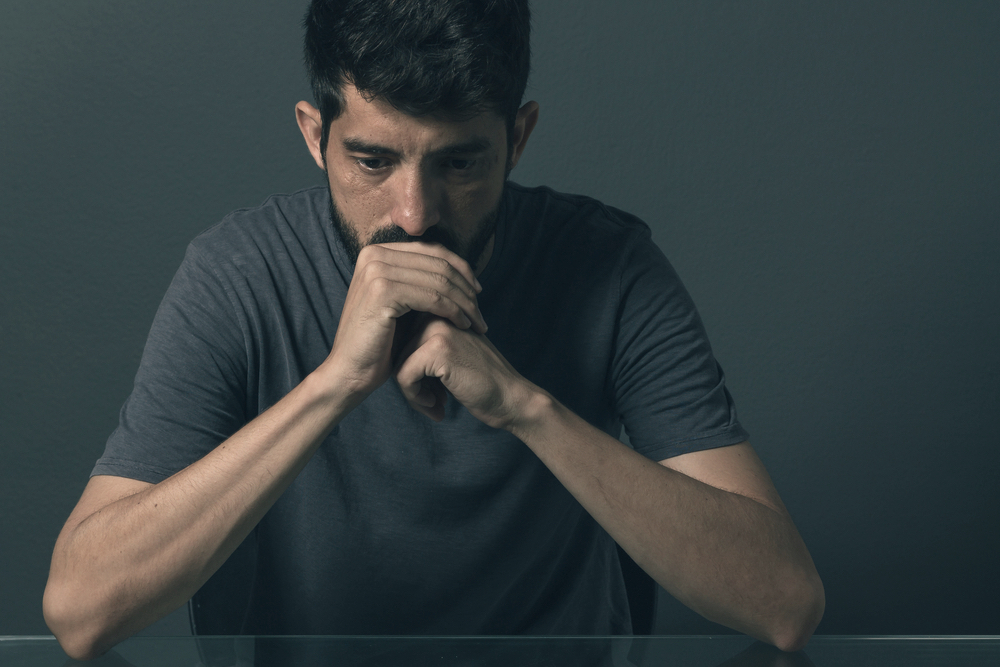Cocaine Comedown: What It Really Feels Like

Cocaine is a stimulant drug that produces sensations of euphoria, energy, and alertness. However, these effects are short-lived, and soon after the high wears off, users often experience what is known as a cocaine comedown.
In this blog post, we will explore what a cocaine comedown is, how it feels, and what you can do to manage its symptoms.
What Is a Cocaine Comedown?
A cocaine comedown is the period of time after the effects of the drug have worn off, during which the user experiences a range of unpleasant physical and psychological symptoms.
Contact Us Today for a Confidential Assessment.
Call (877) 959-5909 Now to Speak with a Specialist
It typically occurs several hours after the last dose of cocaine, and can last for a few hours to a few days, depending on the individual's usage patterns and other factors.
During a comedown, users may experience a range of physical and psychological symptoms, including fatigue, depression, anxiety, irritability, insomnia, and cravings for more cocaine.
These symptoms can be extremely uncomfortable and can interfere with daily functioning and quality of life.
How Does Cocaine Comedown Feels Like?
The experience of a comedown can vary from person to person, depending on factors such as the individual's physiology, usage patterns, and the potency and purity of the drug. Symptoms of a cocaine comedown include several physical symptoms and psychological symptoms.
However, some common symptoms reported by users include:
- Fatigue: Many users report feeling extremely tired and lethargic during a cocaine comedown. This can be because cocaine is a stimulant drug that elevates energy levels, and the sudden crash that follows can leave users feeling drained and exhausted.
- Depression: Cocaine comedowns are often associated with feelings of sadness, hopelessness, and despair. This is thought to be because cocaine affects the brain's reward center, which can lead to a decrease in the production of feel-good chemicals like dopamine and serotonin.
- Anxiety: Some users experience intense feelings of anxiety or panic during a cocaine comedown. This can be because cocaine can cause changes in brain chemistry that disrupt the body's natural stress response.
- Irritability: The use of cocaine may result in users experiencing irritability and agitation during the comedown phase. This could be due to several reasons such as exhaustion, melancholy, or the urge to consume more cocaine.
- Insomnia: Sleeping can be challenging during a cocaine comedown as cocaine is a stimulant that can interfere with the body's usual sleep pattern. This has been reported by several users.
- Cravings: Finally, one of the most common symptoms of a cocaine comedown is cravings for more cocaine. These cravings can be intense and difficult to resist, and can lead to a cycle of addiction and dependence.
Managing Cocaine Comedown Symptoms
Several things can be done to manage its symptoms. Some strategies that may be helpful include:
- Rest: Getting plenty of rest and sleep can help alleviate feelings of fatigue and exhaustion during a cocaine comedown.
- Hydration: It is important to drink plenty of water to stay hydrated and help flush out toxins from the body.
- Nutrition: Eating a balanced diet that is rich in vitamins and minerals can help support the body's recovery and alleviate some of the physical symptoms of a cocaine comedown.
- Exercise: Engaging in light to moderate exercise can help boost energy levels and improve mood during a cocaine comedown.
- Counseling: Talking to a counselor or therapist can help manage the psychological symptoms of a cocaine comedown, such as depression and anxiety.
- Support groups: Joining a support group or attending 12-step meetings can provide a sense of community and support for those struggling with
Getting Help for Cocaine Addiction
Cocaine addiction is a serious condition that requires specialized care and treatment. Treatment programs can help individuals overcome their addiction and get their life back on track.
One of the first steps in cocaine addiction treatment is medical detox. Medical detox is a process in which a person is safely and gradually weaned off the drug under the supervision of medical professionals. This is important because cocaine affects the central nervous system and abrupt cessation can lead to severe withdrawal symptoms, including depression, anxiety, and cravings. Medical detox can help ease the symptoms of cocaine withdrawal and make the process more comfortable for the individual.
In addition to medical detox, treatment programs often include counseling and therapy to address the psychological symptoms of cocaine addiction. Mental health is an important aspect of addiction recovery, and addressing underlying mental health issues is crucial for long-term success.
There are various treatment programs and treatment centers that specialize in cocaine addiction treatment. These facilities offer different levels of care, from outpatient programs to residential treatment facilities. Support groups can also provide a sense of community and support for those struggling with substance abuse.
Long-term substance abuse can have serious physical and psychological effects on the body. Treatment facilities can provide comprehensive care to help individuals overcome their addiction and address any long-term health effects of cocaine abuse.
If you or a loved one is struggling with cocaine abuse and addiction, calling for professional help is essential. It is important to address the physical and psychological symptoms of cocaine addiction and seek care from qualified medical professionals.
Medically Reviewed by:

Preet Joneja is the Clinical Director at Anaheim Lighthouse in Anaheim, California. She is a Board Certified Clinical Psychologist with over 20 years of experience working with individuals suffering from mental and emotional disorders.
Related Topics:
Can You Die From Cocaine? The Lethal Truth About This Dangerous Drug
The Truth About Using Kratom For Opioid Withdrawal
Sources:
Richards, J. R. (2023c, January 8). Cocaine. StatPearls - NCBI Bookshelf. https://www.ncbi.nlm.nih.gov/books/NBK430769/
Bravo, R. R., Faria, A., Brito-Da-Costa, A. M., Carmo, H., Mladěnka, P., Silva, D., & Remião, F. (2022). Cocaine: An Updated Overview on Chemistry, Detection, Biokinetics, and Pharmacotoxicological Aspects including Abuse Pattern. Toxins, 14(4), 278. https://doi.org/10.3390/toxins14040278
Medical Disclaimer:
Anaheim Lighthouse provides fact-based information about the nature of health conditions, treatment options, and their related outcomes to enhance the quality of life for those who are battling with substance use or mental health disorders.
Our content is carefully researched, cited, edited, and evaluated. Nevertheless, please note that our materials are not meant to substitute or serve as a replacement for competent medical advice, diagnosis, or treatment. Hence, it is essential to consult your physician or other qualified healthcare providers for guidance.

